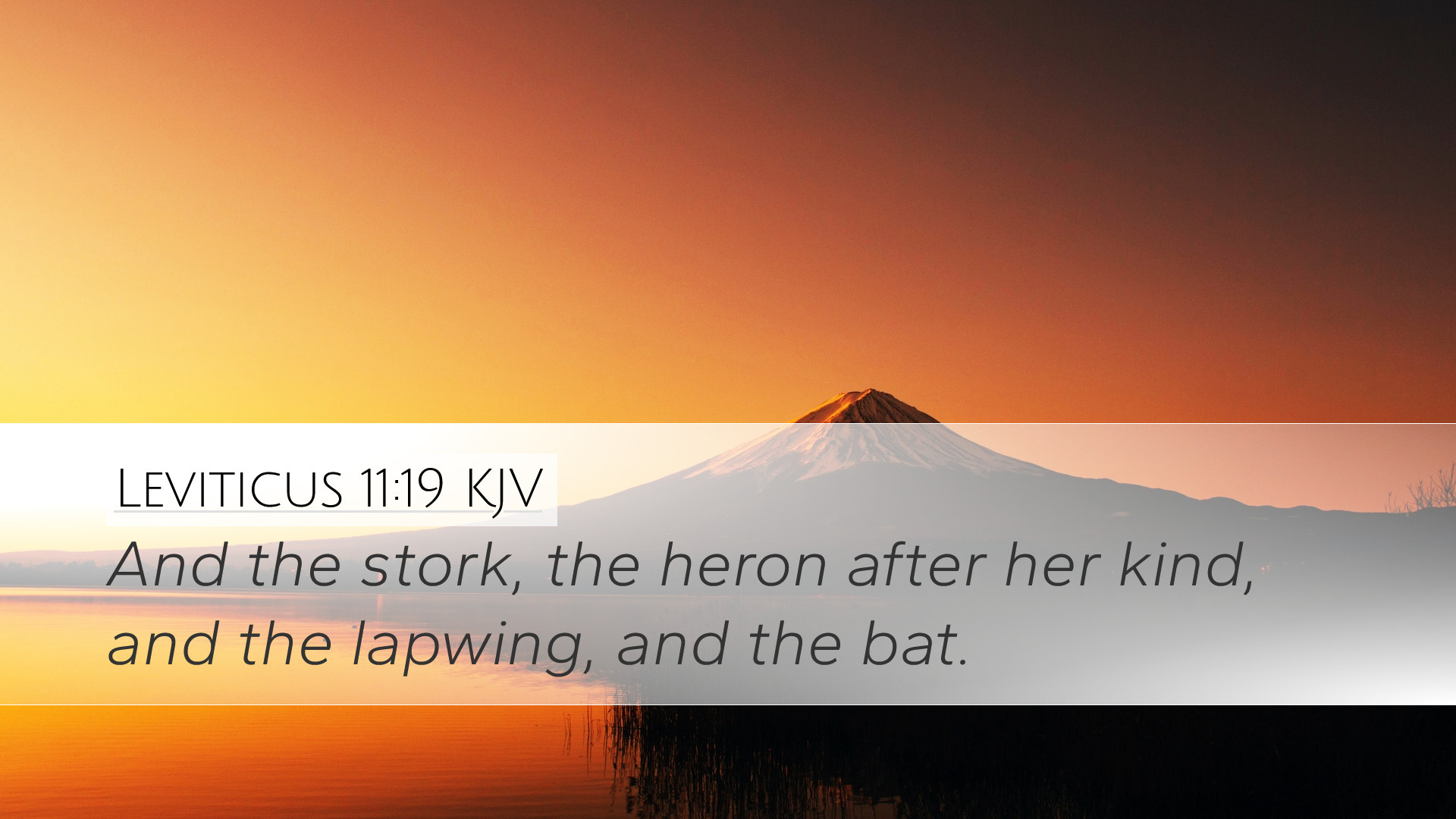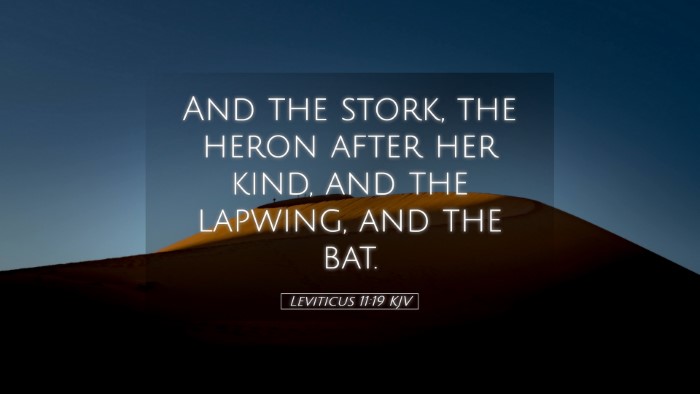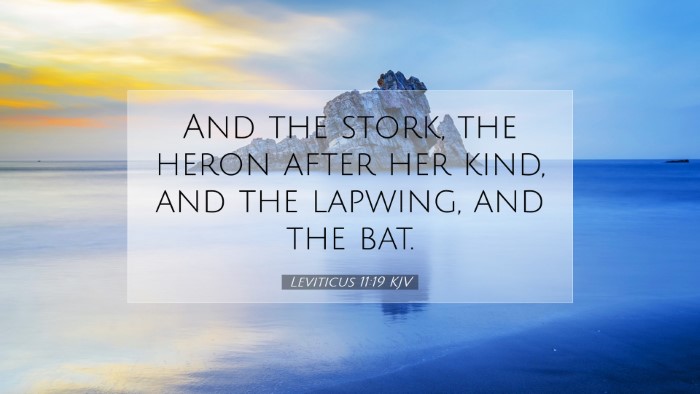Commentary on Leviticus 11:19
Bible Verse: "And the stork, the heron after her kind, and the lapwing, and the bat." (Leviticus 11:19)
Introduction
Leviticus 11 contains God’s detailed instructions to the Israelites regarding clean and unclean animals. These dietary laws have great significance not only for the Israelites but also for understanding the broader themes of holiness, separation, and divine order. The specific mention of birds such as the stork, heron, lapwing, and bat reflects God’s intention to instruct His people regarding what they can and cannot consume.
General Observations
The laws presented in Leviticus serve multiple purposes: they distinguish the Israelites from their pagan neighbors, promote health, and, most importantly, reflect a deeper spiritual truth about holiness and purity. Matthew Henry states that these regulations were established to teach the people to be mindful of God in their daily lives, including their dietary choices.
Insights from Public Domain Commentaries
Matthew Henry
Henry points out that the stork is a bird known for its migratory habits and social nature, often symbolizing loyalty and care, especially in its nurturing behavior towards its young. In Henry's view, the stork can also symbolize God’s providence. The heron ("the heron after her kind") is known for its elegance and graceful hunting in waters, while the lapwing, though not dwelling on its nature, indicates that it is included in a list of birds disallowed for consumption.
Furthermore, Henry highlights that the bat, a creature often misunderstood, is used to illustrate the separation God calls His people to. Bats, being nocturnal and flying creatures, represent things associated with darkness, reminding believers of the need to avoid all forms of spiritual darkness.
Albert Barnes
Barnes elaborates on the classifications of clean and unclean birds in the context of the Hebrew culture. He notes that the inclusion of specific birds like the heron in this list, while common to the locale, shows God’s interest in the health and welfare of His people.
He emphasizes that these laws served to remind the Israelites that not everything in creation is for mankind’s unrestricted use; thus, they must approach the created order with reverence. The classification of these birds provides insight into a larger theological principle—God’s sovereignty over creation as both Creator and the one who separates the holy from the profane.
Adam Clarke
Clarke interprets these dietary restrictions as part of God’s covenant relationship with Israel. The mention of these specific birds leads him to discuss the implications of ritual purity verses moral purity. Clarke suggests that while the law shared dietary laws, moral conduct was inherently tied into how God’s people interacted with His commandments.
He also comments on the cultural backdrop of the ancient world where certain birds were consumed by neighboring nations, noting that God’s command to avoid these creatures was both a form of protection and a call to holiness. The spiritual significance of consuming what is clean as opposed to unclean foreshadows Christian teachings that emphasize becoming a new creation in Christ.
Theological Implications
The list of prohibited birds, including the stork and bat, points towards a careful discernment that must accompany faith and practice. Each creature reflects a deeper truth about what is clean and unclean, ultimately teaching the principle of separation from sin and worldly practices.
The significance of these dietary laws transcends the merely physical; they tap into the relational nature of God's covenant with His people and how they are to live out their identity as distinct from others. The emphasis on holiness, purity, and godly living persists, echoing in the New Testament teachings that Christians are to be in the world but not of it.
Conclusion
Leviticus 11:19 speaks volumes about the nature of God’s holiness and His desire for an abiding relationship with His people, characterized by cleanliness not only in dietary choices but in every aspect of life. For pastors, students, and theologians, this passage serves as a reminder that God’s laws are rooted in love and a desire for holiness, calling us to reflect on our practices, choices, and our own understanding of what it means to live a life set apart for God.


